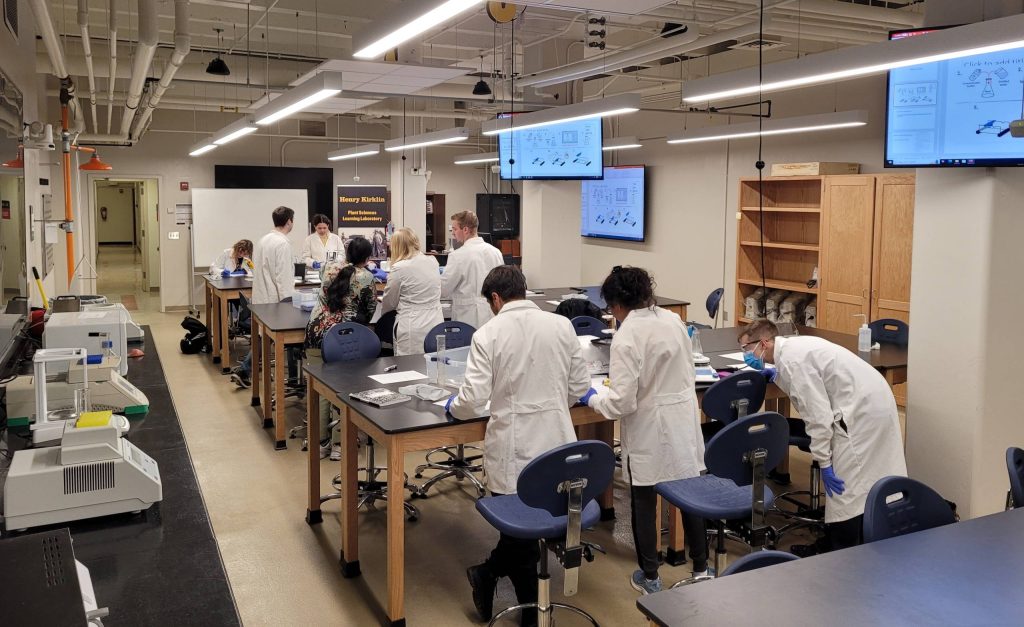
Two years ago, CAFNR recognized Henry Kirklin, a celebrated Black farmer and educator who lived in and around Columbia from 1858 until his death in 1938, with the naming of the Henry Kirklin Plant Sciences Learning Laboratory (3-35 Agriculture Building). Plant sciences students have been able to benefit from the renovated space through a variety of courses and laboratory work.
With funding help from the University of Missouri to enhance teaching and learning across campus, the Henry Kirklin Plant Sciences Learning Laboratory has added even more features to help with student success. A team of Division of Plant Science and Technology faculty secured $100,000 to buy state-of-the-art equipment – and the division also added funds to make it even more worthwhile.
“It’s really exciting,” said Soyon Park, an assistant professor and one of the collaborators on the proposal. “When the renovation was completed a couple of years ago, it provided students with a very nice space; however, there was certainly an opportunity to add more equipment for our students. This funding has allowed us to do exactly that.”
Park worked with a handful of professors to put together the proposal – James Schoelz, Debbie Finke, David Mendoza and Qisheng Song. Heike Buecking, director of the Division of Plant Science and Technology, also played a key role in the project.
“It was a complete team effort,” Park said.
The new equipment includes a real-time PCR machine, which amplifies DNA by regulating temperature in cyclical programs, as well as a high-tech microscope. Park teaches a plant biotechnology course (PLNT_SCI 4550/7550) where equipment of this nature is vital.
“One of the dilemmas we faced before having this new technology was having to take our students to different labs to do the projects required in the courses we teach,” Park said. “It’s sometimes tough to bring several students into a lab where quite a bit of research is already taking place. We now don’t have to move our students from lab to lab.”
Park added that the equipment also helps prepare students for the future. Plant science students pursue a variety of careers, including jobs in research laboratories and industry settings. Being able to work with new technology gives CAFNR students a head start when they enter the workforce.
“Each week our students are doing something different, and the new equipment is playing a huge role in helping them do that work,” Park said. “Even if they aren’t experts with the equipment, they are at least becoming familiar with cutting-edge technology. It allows them to market themselves at a higher level.”
Along with helping the students, Park said the new funding has helped her on the teaching side. This is her second semester teaching the plant biotechnology course at MU.
“As I was developing my lab and my courses, I spent a lot of time setting all of the equipment up one-by-one,” Park said. “Last semester was my first time teaching at any level, and I probably learned just as much as the students did. Coming into this semester, it’s been much easier knowing all the resources that I now have through the Henry Kirklin Plant Sciences Learning Laboratory.”